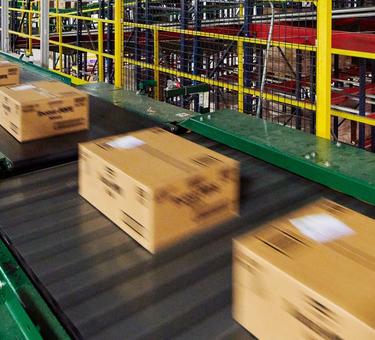E-commerce continues to set sales records with parcel deliveries expected to increase by 80% over the next 10 years. At the same time, there’s a severe shortage of logistics space for e-commerce, which requires three times the space of traditional retail. If e-commerce in Sweden is to grow sustainably and for the long term, more land in locations close to the city must be allocated for logistics purposes, according to global logistics real estate company Prologis.
Online retailing has grown rapidly over the past decade, especially during the pandemic year of 2020 when e-commerce's share of total global retail sales reached nearly 20%, up from 4% in 2011.
The findings of a 2021 Prologis Research report show that changes in behavioral patterns resulting from the pandemic gave e-commerce a major boost, which in turn initiated long-term logistics investments with continued growth expected as a result.
In the first quarter of 2021, sales growth was 53% in Sweden. And future forecasts show no signs of slowing.
Rising demand for logistics real estate in Sweden
Gunnar Gillholm is vice president, country manager for the Nordics at Prologis, the global logistics real estate company with 92 million square meters of logistics space in 19 countries. He believes the continued growth of e-commerce is creating rising demand for efficient, urban and sustainable logistics real estate—something currently in short supply in Sweden.
"We see a number of global challenges in meeting the growing demand for attractive logistics properties. The same trends can also be seen in Sweden, especially in the Stockholm region where strong demand for prime logistics space has resulted in historically low vacancy rates. At the same time, there is a shortage of developable land in locations close to the city with growing price competition for such facilities as a result,” says Gillholm.
Developing better logistics solutions for tomorrow’s e-commerce not only benefits the consumer, it also has tangible environmental benefits. A new study from the MIT Real Estate Innovation Lab shows that the average carbon footprint of e-commerce is 36% lower than the equivalent levels for retail in physical stores.
The study also shows that e-commerce transport-related emissions can be reduced by 50% with the help of expanded logistics facilities in urban locations. One such example, where an existing logistics building was converted and modernized, is Prologis' facility in the Port of Amsterdam. Located just 4.5 kilometers from downtown Amsterdam and with well-developed infrastructure for electric vehicles, the facility is now one of the most environmentally friendly on the market, setting a new standard for sustainable, last-mile logistics close to urban centers.
Land owned by municipalities
In Sweden, municipalities often own the land most suitable for new logistics facilities. Although attractive logistics solutions are an important investment for cities of the future from both a growth and sustainability perspective, lack of developable land is evident, especially for metropolitan regions.
"Today, the shortage of available land in the Stockholm region, for example, would likely make it difficult to accommodate large international logistics-intensive operators. In order to maintain the region's attractiveness and not risk environmental impact caused by avoidable long transports, regions like Stockholm and its surrounding municipalities should consider the potential of making more land available for logistics purposes," says Gillholm.
